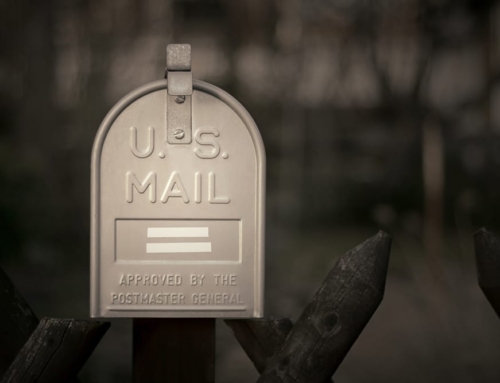My father died and had a mortgage. Can I keep it? This reader wants to know if they can assume an existing mortgage loan after a parent’s death.
Q: My father and I were joint tenants with right of survivorship on our home. He recently died and I would like to stay in my house. There is an existing mortgage on the house, which my father was listed as the borrower.
I did sign papers when we closed on our refinance but was not on the loan at the time. I’ve done a little research into the Garn-St. Germain Act and have questions about assuming the existing mortgage. How do I accomplish this? Will I have to refinance?
I am current on the payments and will continue to pay them on time. I do need to notify the bank of the change, but don’t want to do that until I know my rights.
My Father Died And Had A Mortgage. Can I Keep It?
A: We like that you’ve done some research into your situation and are glad that you found the Garn-St. Germain Act of 1982. Except when it comes to reverse mortgages – and we’re assuming your refinance was not a reverse mortgage, that Act basically prevents lenders from calling a loan due from a deceased borrower’s estate when a close relative keeps the home.
Let’s take a step back. You and your father owned the home and your father was the only person on the loan. When your father died, you automatically became the sole owner of the home. Joint tenancy with rights of survivorship does that – it allows the title to transfer from one joint owner to the other automatically upon the death of one of the owners.
On the issue of the mortgage: if, upon your father’s death, you wanted to sell the home, you could do that and you’d pay off the mortgage at the time of the sale. If the interest rate on your dad’s loan is high or you can get a better deal now, you could refinance the loan with a lender of your choice and that new loan would be in your name.
What If You Don’t Want to Refinance?
Let’s say that the loan you have is a great deal and you don’t want to refinance. In that case, you really don’t need to do anything. The old loan was in your father’s name and is secured by the home. If you fail to make payments on the loan, the lender still has its security and can foreclose on the home. So, as long as you make all the payments, keep up the insurance and pay the real estate taxes, the lender can’t call the loan.
As you found out, the Garn-St. Germain Act protects a spouse or a child from having the lender say that the loan is now due and force the refinance or sale of the property.
One Main Benefit to Having Your Name on the Mortgage Loan
One of the only benefits that we see by having you named on the loan is that the lender would report your on-time payments to the credit reporting bureaus and that would help your credit score and credit history. Given that we don’t know your credit score or credit history, we’re not sure it’s worth the time or hassle trying to see if the lender would be willing to have you “assume” the loan or have the lender “change” the name on the loan. The most likely reaction you’ll get from the bank is that you should pay off the loan and get a new one.
So, if the current loan works for you, and is a better deal than you could otherwise get in the marketplace today, you should keep it. If you find that you can get a better interest rate or a better deal on a shorter loan term, then you should move forward with the refinance.
To our readers: If any of you have been successful changing loans into your own name after the death of a close family relative, please share your story.
Ilyce Glink is the Publisher of ThinkGlink.com. Sam Tamkin is a Chicago-based real estate attorney. They co-write their nationally-syndicated Real Estate Matters column.
More on Topics Related to My Father Died And Had A Mortgage. Can I Keep It?
Does Death Of Spouse Affect Your Mortgage?
What Happens to Taxes When You Co-Sign a Mortgage for Your Child?
Are Transfer on Death (TOD) Deeds Smart?
Should You Have a Transfer on Death Deed, a Living Trust or Both?









We buy properties through inheritance all the time, but I had never heard of the Garn-St. Germain Act, thank you for writing about it. Its something I will for sure share in the future to put people at ease.
Hi!
My deceased Mom left me her home to me, her son, via a Quit Claim Deed. She was behind on payments at the time of her death. I tried to assume the loan and modify the delinquent amount, but, the bank said that I cannot assume it as I am not on the Note. I explained the Garn St. Germain and they balked, repeating the same. I lost my Mom’s home, which I live in with my two children to foreclosure, and most recently receive a thirty day Notice to Quit, evicting me. Does anyone believe a wrongful Foreclosure case may exist here? I live in Massachusetts. My email is [email protected].
Hi, Jim! Did anyone respond to your question? I’m curious as to what your outcome was / is?
Hi I was wondering I have been living with my father taking care of him for three years, he passed away on Father’s day of 2018 I have been continuing to keep my house payment made, but my sister and I don’t get along and she was executor, and power of attorney over his finances. After he passed away he had a life insurance policies and he should have had like 60,000 in his bank, she brought me $1,300 and said, ” here this is all right there was ” She told me dad wanted her to have it all, and told me to stay, or don’t. She don’t want to be responsible for the house. Well I live in it, and I pay the bill. Do I have to go through probate or anything or can I just call the mortgage company and tell them I live here and they can see it’s me who pays the bill, and I’ve been living here taking care of him and home since 2016, can I assume the loan or do I have to go through some of court because she was executor? I plan on living here untill I pass, but if I just keep making payment I feel like I will get scrood over by her so should I call lender and put it in my name?
My Dad passed on Dec 02, 2012, I have one Brother, one stepbrother, one stepsister, I have been paying taxes, insurance, water, electricity since, can I get the house in my name, called stepsister to get hold of my stepbrother, they live in Singapore, have not heard from them in a few years, my brother says he doesn’t want to do anything with my Dad’s estate…..what are my options…I am tired of mowing the lawn, keeping homeless out of house,,,etc
Hi my dad died August 24 he did not have a will….can I take over payment on his house….and what do I need to do
Windy:
Are there any other possible heirs? If not, then the property will likely come to you but because you’re not on title (I’m assuming) you will have to go to court to get the house put into your name. Typically, when someone dies intestate, the state’s inheritance laws take over. You’ll need to talk with an estate attorney to figure out who else might be able to lay claim to the property.
Good luck,
Ilyce
My dad passed in 2016, mom in 08.. No will. After mom died in 08 my husband and I moved in with him due to his health and need of care. Shellpoint mortgage servicing approved me to assume the loan. 8 months later they said my half brother from my moms first marriage has to sign a quit claim or be on the mortgage with me. It will never happen due to he can’t be located…even the Sheriff couldn’t find him to serve. He has a very serious drug habit. Again my father is not his father. His father is my mom’s first husband. I moved here 12 years ago to take care of my dad…this is my home. After Shellpoint said I was approved we spent our own money to fix many problems with the home. We attended ALL hearings concerning the home only to be told several months later about my half brother who’s name somehow wound up on the deed…Shellpoint sent me a copy and it DOES NOT INCLUDE HIS NAME. So now after my parents who paid on this mortgage for 26 years on time every single month at a nearly 10% interest rate this Shellpoint has basically said to me “oh well” and are trying to auction the property. A BPO was done on the property and is well worth more than is owed. It would be so appreciated if someone could give me sound advice as to what to do. This is my home. It’s what my dad wanted. I feel it’s so unfair that they are not willing budge an inch. Any help would be much appreciated.
Thank you
I would like to assume the mortgage on my deceased father’s home to help build my credit. The current lender said that I *must* refinance, however I would actually like to keep the current terms of the mortgage, since the interest rate is good.
If I want to move forward, do I need to refinance with the current lender first or can I go to any lender? What type of professional could help me with this process, for example a mortgage broker, estate lawyer, realtor?
Thanks!